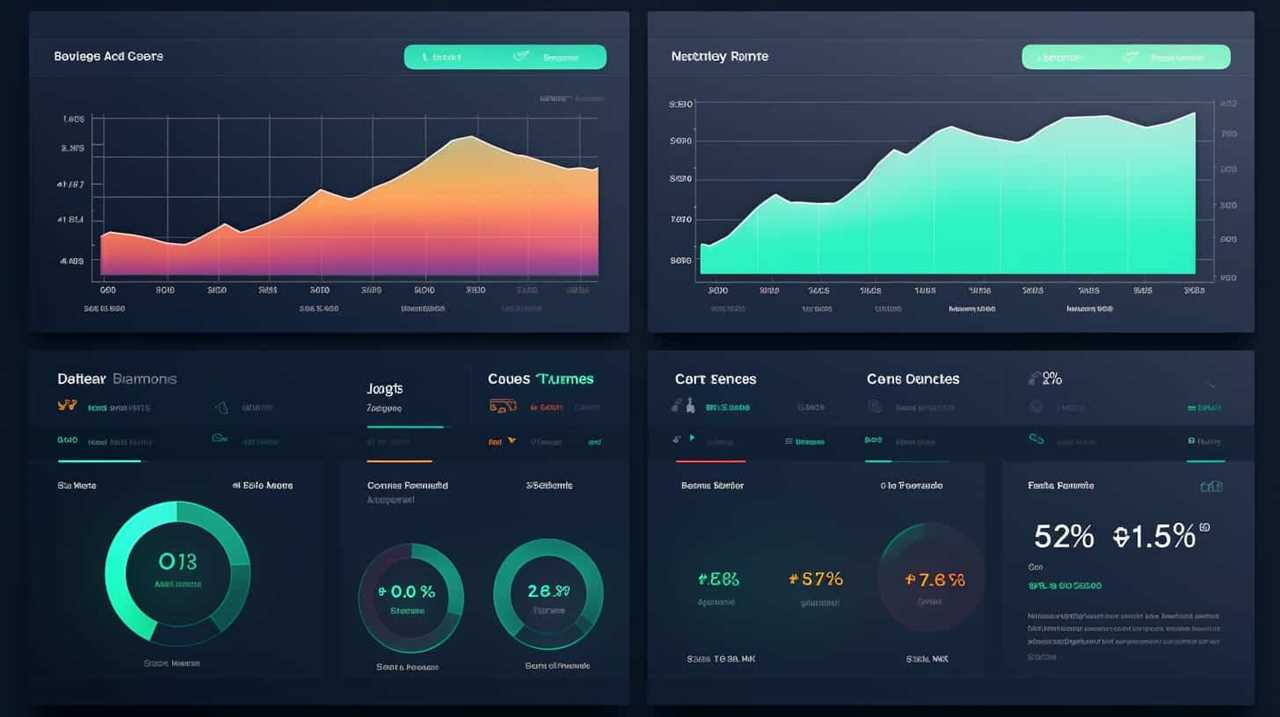Holistic SEO
How to Establish Dominance in SEO through Topical Authority

In the world of SEO, achieving topical authority is key to digital success. This guide provides you with vital strategies and tips for building and enhancing your website’s topical authority, thereby boosting your positions in search engine rankings.
Article Summary: This article explores the significance of establishing dominance in SEO through topical authority and provides effective strategies to achieve this. It highlights the key steps to establish dominance, emphasizing the crucial role of topical authority in successful search engine optimization. Building topical authority contributes to higher search engine rankings and can be achieved through the concept of silos. The article discusses various strategies for building topical authority in a specific topic and explains how SEO plays a role in this process. Focusing on building topical authority brings several benefits, including attracting more organic traffic to a website. Tools and techniques are available to measure topical authority, which directly affects a website’s visibility and credibility in search engine results. Real-life examples of successful businesses that have established dominance through topical authority are provided. The article also addresses common challenges faced when trying to build topical authority and offers tips on optimizing website content to enhance topical authority in SEO.
1. Understanding Topical Authority in SEO and Its Importance
Topical authority refers to the level of expertise and credibility a website or content has on a specific topic or subject area. It is an important concept in search engine optimization (SEO) as search engines strive to deliver the most relevant and high-quality results to users. When a website demonstrates topical authority, it is more likely to rank higher in search engine results pages (SERPs) for related queries.

To establish topical authority, it is crucial to create comprehensive and informative content that covers all aspects of a particular topic. This includes providing in-depth analysis, research, and insights that are valuable to users seeking information on that subject. By consistently producing high-quality content, websites can demonstrate their expertise and build trust with both users and search engines.
The Importance of Topical Authority
Having strong topical authority can bring several benefits to a website. Firstly, it helps increase organic search visibility by improving rankings for relevant keywords. When search engines recognize a site as an authoritative source on a specific topic, they are more likely to display it prominently in SERPs.
Secondly, topical authority enhances user trust and engagement. Users are more likely to view websites with established expertise as reliable sources of information. This leads to longer dwell times on the site, lower bounce rates, higher click-through rates, and increased conversions.

Key Factors for Establishing Topical Authority:
- Create high-quality content: Producing well-researched, comprehensive content that addresses user intent is essential for establishing topical authority.
- Consistency: Regularly publishing new content related to the topic helps demonstrate ongoing expertise.
- Earning backlinks: Obtaining links from reputable websites within the same niche signals to search engines that the site is a trusted authority.
- Engagement and social signals: Active engagement on social media platforms and receiving shares, likes, and comments can contribute to establishing topical authority.
2. The Role of Topical Authority in Boosting Search Engine Rankings
Topical authority plays a crucial role in boosting search engine rankings. When a website demonstrates expertise, relevance, and trustworthiness on a specific topic, search engines are more likely to rank it higher in SERPs for related queries. This is because search engines aim to deliver the most relevant and valuable results to users.
Search engines use various algorithms and ranking factors to determine topical authority. These factors include content quality, backlink profile, user engagement metrics, domain authority, and more. Websites that consistently produce high-quality content and have strong signals of topical authority are rewarded with better rankings.
The Impact of Topical Authority on Rankings
Having strong topical authority can lead to improved rankings for both broad keywords within the topic area as well as long-tail keywords that are more specific. For example, if a website has established itself as an authoritative source on “digital marketing,” it is likely to rank higher for related keywords like “social media marketing strategies” or “SEO techniques.”
Topical authority also helps websites compete against larger or more established competitors. Even if a website has lower overall domain authority or fewer backlinks compared to competitors, it can still outrank them by demonstrating superior expertise and relevance on a specific topic.

Factors Influencing Topical Authority:
- Content quality: High-quality content that provides value and addresses user intent is crucial for establishing topical authority.
- Backlinks: Earning authoritative backlinks from relevant websites strengthens topical authority signals.
- User engagement metrics: Metrics like dwell time, bounce rate, and click-through rate indicate user satisfaction and can contribute to topical authority.
- Domain authority: A strong overall domain authority can support topical authority efforts.
1. Expertise and Knowledge
One of the key factors to consider for establishing topical authority is expertise and knowledge in the subject matter. In order to be seen as an authoritative source, it is important to have a deep understanding of the topic you are discussing. This involves staying up-to-date with the latest trends, research, and developments in your field.
To demonstrate your expertise, you can provide valuable insights, analysis, and unique perspectives on the topic. This can be done through in-depth articles, case studies, whitepapers, or even by sharing personal experiences related to the subject matter.

Ways to showcase expertise:
- Regularly publish high-quality content that demonstrates your knowledge and understanding of the topic.
- Cite reputable sources and include references to back up your claims.
- Engage with other experts in your field through interviews or collaborations.
- Participate in industry events, conferences, or webinars as a speaker or panelist.
2. Consistency and Frequency of Content
In order to establish topical authority, it is crucial to consistently produce high-quality content related to the topic. This helps build credibility and trust among your audience over time. Regularly publishing new content also signals to search engines that you are actively engaged in providing valuable information on the subject matter.
Frequency plays a role as well; posting sporadically may not be sufficient for establishing authority. Aim for a consistent publishing schedule that aligns with your audience’s expectations and keeps them coming back for more.

Tips for maintaining consistency:
- Create an editorial calendar to plan and organize your content creation process.
- Set realistic goals for the frequency of your content publication based on your available resources.
- Ensure that each piece of content is well-researched, well-written, and provides value to your audience.
- Engage with your audience by encouraging comments, questions, and feedback on your content.
3. Backlinks from Authoritative Sources
Backlinks from authoritative sources can significantly boost your topical authority. When reputable websites or experts in your field link back to your content, it signals to search engines that you are a trusted source of information on the topic. These backlinks act as endorsements and can help improve your search engine rankings.
To attract backlinks from authoritative sources, focus on creating exceptional content that others find valuable and worth referencing. Building relationships with influencers or industry leaders can also increase the likelihood of them linking to your content.
Tactics for acquiring backlinks:
- Reach out to other bloggers or websites in your niche and propose guest posting opportunities.
- Create shareable infographics, research papers, or other forms of valuable content that others are likely to link to.
- Participate in online communities or forums related to your topic and provide helpful insights while subtly promoting your own content when relevant.
- Collaborate with influencers or experts in joint projects that generate buzz and attract attention from their audiences.
Remember, establishing topical authority takes time and effort. By focusing on expertise, consistency in publishing quality content, and building relationships with authoritative sources through backlinking strategies, you can enhance your credibility and become a trusted resource within your chosen field.

4.1 Content Relevance
Content relevance is a crucial factor that drives topical authority. When your content is highly relevant to a specific topic, it signals to search engines that you have in-depth knowledge and expertise in that area. To ensure content relevance, start by conducting thorough keyword research to identify the key terms and phrases related to your topic. Incorporate these keywords strategically throughout your content, including in the title, headings, meta tags, and body text.
4.1.1 Keyword Optimization
Keyword optimization involves using the identified keywords naturally and strategically within your content. This includes incorporating them in the page title, headings (H1-H6), image alt tags, URL structure, and meta description. However, it’s important to avoid keyword stuffing – overusing keywords unnaturally can lead to penalties from search engines.
4.1.2 Semantic SEO
Semantic SEO refers to the practice of optimizing your content not just for specific keywords but also for related concepts and entities within a particular topic. It involves understanding the context of user queries and providing comprehensive information that addresses their intent. By utilizing semantic SEO techniques such as incorporating synonyms, related terms, and answering potential questions related to your topic, you can enhance content relevance and improve topical authority.
4.2 Content Quality
The quality of your content plays a vital role in establishing topical authority. High-quality content not only engages readers but also earns credibility and trust from both users and search engines.
4.2.1 Unique and Original Content
To build topical authority, it is essential to create unique and original content that offers value to your target audience. Avoid duplicating or plagiarizing content from other sources, as this can harm your credibility and rankings. Instead, focus on providing fresh insights, unique perspectives, and well-researched information that adds value to the existing knowledge on the topic.

4.2.2 Comprehensive and In-Depth Information
Comprehensive and in-depth content demonstrates expertise and authority in a particular subject. When creating content, aim to cover all relevant aspects of the topic comprehensively. This can include providing detailed explanations, step-by-step guides, case studies, statistics, and examples. By offering comprehensive information that goes beyond superficial coverage, you establish yourself as a trusted source of knowledge in your niche.
4.2.3 User-Friendly Formatting
In addition to the substance of your content, its presentation also contributes to its quality. Utilize user-friendly formatting techniques such as clear headings (H1-H6), bullet points, numbered lists, paragraphs with proper spacing, relevant images or visuals, and easy-to-read fonts. These formatting elements enhance readability and make it easier for users to consume your content, thereby improving engagement and boosting topical authority.
5. Enhancing Topical Authority: The Power of Backlinks
Why are backlinks important?
Backlinks play a crucial role in enhancing topical authority for a website. When other reputable websites link to your content, search engines view it as a vote of confidence and credibility. These incoming links indicate that your website is an authoritative source on a particular topic, which can significantly boost your rankings in search engine results pages (SERPs). High-quality backlinks not only drive referral traffic to your site but also signal to search engines that your content is valuable and relevant.
How to acquire high-quality backlinks?
To enhance topical authority through backlinks, it’s essential to focus on acquiring high-quality links from authoritative sources. Here are some strategies you can employ:
- Create exceptional content: Producing well-researched, informative, and engaging content increases the likelihood of earning natural backlinks from other websites.
- Guest blogging: Reach out to influential blogs or websites in your industry and offer to write guest posts. This allows you to showcase your expertise while gaining valuable backlinks.
- Build relationships with influencers: Engage with key influencers in your niche by sharing their content, commenting on their posts, or collaborating on projects. This can lead to opportunities for them to link back to your site.
- Utilize social media platforms: Share your content across various social media channels to attract attention and potentially earn backlinks from users who find value in what you share.
The importance of anchor text
When building backlinks, the anchor text used plays a significant role in conveying relevance and strengthening topical authority. Anchor text refers to the clickable text within a hyperlink. It’s crucial to choose anchor text that accurately describes the linked page’s topic or keyword without resorting to keyword stuffing or over-optimization practices.
Monitoring and managing backlinks
Regularly monitoring your backlink profile is essential to ensure the quality and relevance of your acquired links. Tools like Google Search Console or third-party SEO tools can help identify any toxic or low-quality backlinks that may harm your site’s authority.
If you discover such links, it’s important to take necessary actions, such as disavowing them through Google’s Disavow Tool. In summary, building high-quality backlinks from reputable sources is a powerful strategy for enhancing topical authority.
By focusing on creating exceptional content, engaging with influencers, and utilizing social media platforms, you can attract valuable backlinks that signal your website’s expertise in a particular subject area. Monitoring and managing your backlink profile is crucial to maintain a strong and authoritative online presence.
6.1 Creating High-Quality and Relevant Content
One of the most effective strategies for building topical authority is to consistently create high-quality and relevant content. This involves conducting thorough research on the topic, understanding your target audience’s needs and interests, and delivering valuable information through your content.
To ensure that your content is top-notch, consider using various formats such as blog posts, videos, infographics, or podcasts. This allows you to cater to different learning preferences and engage a wider audience. Additionally, optimize your content by incorporating relevant keywords naturally throughout the text, headings, and meta tags.
Key Points:
- Thoroughly research your topic before creating content.
- Understand your target audience’s needs and interests.
- Diversify your content formats to cater to different preferences.
- Incorporate relevant keywords throughout your content.
6.2 Building Backlinks from Authoritative Sources
Another effective technique for building topical authority is to acquire backlinks from authoritative sources in your industry. Backlinks act as votes of confidence for search engines, indicating that other reputable websites find value in your content.
To obtain quality backlinks, focus on creating exceptional content that others would naturally want to reference or share. Reach out to influencers or experts in your field and offer them guest posting opportunities or collaborations. Additionally, consider submitting guest posts or articles to reputable publications within your niche.
Tips:
- Create valuable content that others would want to reference or share.
- Reach out to influencers or experts for guest posting opportunities.
- Submit guest posts or articles to reputable publications in your industry.
Understanding the Importance of Keyword Research
Keyword research is a crucial step in any SEO strategy as it helps to identify the specific words and phrases that users are searching for in relation to your industry or niche. By understanding these keywords, you can optimize your website’s content to align with what your target audience is looking for. This not only improves your chances of ranking higher in search engine results pages (SERPs), but also enhances your topical authority.
The Role of Topical Authority
Topical authority refers to the expertise and credibility a website has on a particular topic or subject matter.
It is an important factor that search engines consider when determining how relevant and valuable a website’s content is to users’ search queries. By harnessing the power of keyword research, you can create high-quality, informative content that demonstrates your topical authority, making it more likely for search engines to recognize and rank your website higher. One way to establish topical authority is by incorporating long-tail keywords into your content.
These are longer, more specific keyword phrases that have lower search volumes but higher conversion rates. By targeting these long-tail keywords, you can attract a more qualified audience who are actively searching for information related to your niche.

Another effective strategy is to conduct competitor analysis using keyword research tools. By analyzing the keywords that competitors are ranking for, you can gain insights into their content strategies and identify any gaps or opportunities for improvement within your own content.
In summary, keyword research plays a pivotal role in enhancing topical authority by helping you understand the language and intent of your target audience. By optimizing your content around relevant keywords and providing valuable information on specific topics, you can establish yourself as an authoritative source in your industry or niche.
8.1 Importance of Niche Focus
8.1.1 Establishing Expertise
Having a niche focus is essential for building topical authority because it allows you to establish yourself as an expert in a specific area. By honing in on a particular niche, you can develop deep knowledge and expertise that sets you apart from generalists. This expertise builds trust with your audience and positions you as a go-to resource for information related to your niche.
8.1.2 Targeted Audience Engagement
A niche focus enables you to target a specific audience that is interested in your chosen topic. By catering directly to this audience’s needs and interests, you can create content that resonates deeply with them, leading to higher engagement rates and increased loyalty. When your audience sees that you consistently provide valuable insights and solutions within your niche, they are more likely to view you as an authority figure.
Benefits of Niche Focus:
- Becoming known as an expert in the field
- Building trust and credibility with your audience
- Increasing engagement and loyalty from a targeted audience
- Gaining recognition as a go-to resource for niche-specific information
8.2 Challenges of Niche Focus
While having a niche focus offers numerous benefits, it also comes with its own set of challenges.
8.2.1 Limited Audience Size
Focusing on a narrow niche means that your potential audience size may be smaller compared to targeting broader topics or industries. This limited reach can make it more challenging to attract large numbers of visitors or followers initially.
8.2.2 Staying Updated and Relevant
As an authority within your niche, it is crucial to stay updated with the latest developments and trends. This requires continuous research and learning to ensure that your content remains relevant and valuable. It can be demanding to constantly stay ahead of the curve in a specific niche.
Challenges of Niche Focus:
- Potentially limited audience size
- The need to continuously stay updated and relevant
- Higher competition within the niche from other experts
- Potential difficulty in diversifying content topics
In conclusion, having a niche focus is essential for building topical authority as it allows you to establish expertise, engage with a targeted audience, and gain recognition as an authority figure within your chosen field. However, it also comes with challenges such as limited audience size and the need to constantly stay updated. By effectively navigating these challenges, you can leverage the benefits of niche focus to strengthen your topical authority.
Building a Strong Social Media Strategy
When it comes to leveraging social media presence to improve topical authority, having a strong social media strategy is crucial. Start by identifying the platforms that are most relevant to your target audience and industry. This could include popular platforms like Facebook, Twitter, Instagram, LinkedIn, or even niche-specific forums and communities.
Once you have identified the platforms, create engaging and valuable content that aligns with your expertise and target audience’s interests. Regularly share informative blog posts, articles, videos, infographics, or any other form of content that showcases your topical authority. Encourage engagement by asking questions, starting discussions, and responding promptly to comments or messages.
Consistency is Key
To truly leverage your social media presence for improving topical authority, consistency is key. Consistently posting high-quality content not only helps you build credibility but also keeps your audience engaged and coming back for more. Develop a content calendar or schedule to ensure regular updates across all chosen platforms.
In addition to consistency in posting content, it’s important to maintain consistency in branding. Use consistent visuals (such as logos or color schemes) and tone of voice across all social media channels to establish a cohesive brand identity that reinforces your topical authority.
Engaging with Influencers and Industry Experts
An effective way to improve topical authority through social media is by engaging with influencers and industry experts in your field. Identify individuals who have established themselves as authorities in your niche and actively follow their accounts.
Interact with their content by liking, sharing, commenting on their posts or even tagging them when relevant. This not only helps you build relationships with influential figures but also exposes your brand to their followers who may be interested in similar topics.
Collaborating on Guest Posts or Takeovers
Another way to leverage social media presence for improving topical authority is by collaborating with influencers or industry experts on guest posts or takeovers. This involves writing a guest post for their blog or website, or taking over their social media accounts for a day to share your expertise.
By associating yourself with established authorities in your niche, you gain credibility and exposure to a wider audience. It also provides an opportunity to showcase your knowledge and establish yourself as an expert in the eyes of both the influencer’s followers and your own audience.
Monitoring and Responding to Social Media Mentions
To further enhance your topical authority through social media, it’s essential to actively monitor and respond to social media mentions related to your field. Set up alerts or use social listening tools to keep track of conversations happening around keywords relevant to your expertise.
When someone mentions your brand, product, or any topic related to your niche, promptly engage with them by liking their post, leaving a thoughtful comment, or answering their questions. This not only shows that you are actively involved in the conversation but also helps establish yourself as an authority who is knowledgeable and approachable.
Providing Valuable Resources
In addition to responding directly to mentions, leverage social media platforms as a means of providing valuable resources related to your area of expertise. Share links to informative articles, research papers, case studies, or even create downloadable guides or e-books that offer in-depth insights on specific topics.
By consistently sharing valuable resources that align with your expertise, you position yourself as a go-to source for reliable information within your niche. This helps build trust among your audience and strengthens your topical authority over time.
Note: The above paragraphs are just examples and can be modified or expanded further based on specific requirements.
1. Focusing on Quantity over Quality
One common mistake that many people make when trying to build topical authority is focusing too much on producing a large volume of content rather than ensuring its quality. While it’s important to consistently create content, it’s equally crucial to prioritize the value and relevance of the information you provide. Instead of churning out numerous mediocre articles or blog posts, aim for fewer but well-researched and comprehensive pieces that truly showcase your expertise in a particular subject.
Key Points:
- Emphasize quality over quantity when creating content.
- Avoid producing mediocre or shallow pieces.
- Favor well-researched and comprehensive articles that demonstrate expertise.
2. Neglecting User Intent and Searcher Needs
Another mistake to avoid is failing to understand user intent and aligning your content with what searchers are actually looking for. It’s not enough to simply write about a topic; you need to address the specific questions, concerns, or problems that your target audience has. Conduct thorough keyword research and analyze search trends to identify the most relevant topics and keywords related to your niche. By tailoring your content to match searcher needs, you’ll increase the chances of attracting organic traffic and establishing yourself as an authoritative source in your field.
Key Points:
- Understand user intent and align your content accordingly.
- Address specific questions, concerns, or problems of your target audience.
- Conduct keyword research and analyze search trends for relevant topics.
3. Lack of Consistency in Publishing Schedule
In order to build topical authority, it’s important to consistently publish content on a regular basis. Many people make the mistake of being inconsistent with their publishing schedule, which can negatively impact their efforts. Set a realistic publishing frequency that you can maintain and stick to it. This not only helps you stay on track but also signals to search engines and your audience that you are actively engaged in providing valuable information. Whether it’s a weekly blog post or a monthly in-depth guide, establish a routine that works for you and commit to it.
Key Points:
- Consistently publish content at regular intervals.
- Avoid being inconsistent with your publishing schedule.
- Set a realistic frequency and stick to it.
Factors Affecting Timelines
Several factors can influence the timeline for seeing results from building topical authority. Firstly, the competitiveness of the industry or niche plays a significant role. If you operate in a highly competitive market, it may take longer to establish your authority compared to a less crowded space.
Secondly, the amount of effort and resources dedicated to building topical authority is crucial. Consistently creating high-quality content, engaging with your audience, and actively participating in relevant communities can expedite the process. Conversely, sporadic efforts or lack of consistency may prolong the timeline.
Short-Term Expectations
In the short term, building topical authority primarily focuses on laying the foundation for future growth. During this phase, you should aim to establish your expertise and credibility within your chosen topic or industry. This involves producing informative blog posts, creating valuable resources such as guides or ebooks, and sharing insightful content on social media platforms.
Additionally, actively engaging with other experts and influencers in your field can help enhance your visibility and reputation. Collaborating on guest posts or participating in interviews can provide exposure to new audiences and contribute to your overall authority-building efforts.
Long-Term Expectations
In the long term, consistent efforts towards building topical authority start yielding significant results. As you become recognized as an expert in your field, you may witness various benefits:
1. Increased Organic Search Traffic:
- Your website’s visibility on search engine result pages improves as search engines recognize your expertise and relevance within the topic.
- You attract more organic traffic from users searching for information related to your area of expertise.
2. Higher Conversion Rates:
- Establishing topical authority builds trust with your audience, increasing the likelihood of conversions and sales.
- Your expertise positions you as a reliable source, making visitors more inclined to engage with your products or services.
3. Opportunities for Collaboration:
- Other industry experts and influencers may seek collaborations, such as joint webinars, podcasts, or partnerships.
- Your authority status opens doors to networking opportunities and mutually beneficial relationships.
It’s important to remember that building topical authority is an ongoing process that requires continuous effort and adaptation. While timelines can vary depending on the factors mentioned above, a consistent focus on providing value to your audience will ultimately lead to long-term success in establishing your authority within your chosen topic.
12.1 Google Analytics
Google Analytics is a powerful tool for monitoring and measuring the progress of your topical authority. It provides valuable insights into website traffic, user behavior, and conversions. With Google Analytics, you can track the number of visitors coming to your site, the sources of traffic (such as organic search, social media, or referrals), and the pages they are visiting the most.
Additionally, Google Analytics allows you to set up goals and track conversions related to your topical authority efforts. For example, you can create a goal for newsletter sign-ups or downloads of your content resources. By analyzing these metrics over time, you can assess the effectiveness of your content strategy in establishing and improving your topical authority.
12.1.1 Key Metrics to Monitor in Google Analytics
When using Google Analytics to measure topical authority progress, there are several key metrics that you should pay attention to:
- Organic Traffic: This shows how many visitors are finding your website through organic search results. An increase in organic traffic indicates that your content is ranking well for relevant keywords.
- Average Time on Page: This metric measures how long visitors spend on each page of your website. A higher average time on page suggests that visitors find your content engaging and valuable.
- Bounce Rate: Bounce rate represents the percentage of visitors who leave your site after viewing only one page. A lower bounce rate indicates that users are exploring multiple pages and finding value in your content.
- Conversion Rate: Conversion rate measures the percentage of visitors who complete a desired action on your site, such as making a purchase or filling out a contact form. Monitoring conversion rates helps determine the effectiveness of your topical authority in driving desired user actions.
12.2 Social Media Monitoring Tools
In addition to website analytics, social media monitoring tools can provide valuable insights into the progress of your topical authority on various social platforms. These tools allow you to track mentions, engagement, and sentiment related to your brand or topics.
One popular social media monitoring tool is Hootsuite. It enables you to monitor multiple social media channels in one place and provides analytics on follower growth, engagement rates, and content performance. By analyzing these metrics, you can identify which content resonates most with your audience and adjust your topical authority strategy accordingly.
12.2.1 Hootsuite Features for Topical Authority Monitoring
Hootsuite offers several features that are particularly useful for monitoring topical authority progress:
- Social Listening: This feature allows you to track mentions of specific keywords or topics across various social media platforms. By monitoring conversations related to your industry or niche, you can stay informed about emerging trends and engage with relevant discussions.
- Sentiment Analysis: Hootsuite’s sentiment analysis feature evaluates the tone of mentions about your brand or topics. It helps you gauge whether the sentiment is positive, negative, or neutral, allowing you to address any concerns or capitalize on positive feedback.
- Competitor Analysis: With Hootsuite, you can also monitor the social media activities of your competitors. This enables you to identify their successful strategies and learn from them while refining your own approach to building topical authority.
These tools provide valuable data and insights that can guide your efforts in establishing and measuring topical authority progress. By regularly analyzing these metrics, you can make informed decisions and optimize your content strategy to enhance your topical authority in the long run.
13. Guest Blogging and Influencer Collaboration: Boosting Topical Authority
Guest Blogging
Guest blogging is a powerful strategy for boosting topical authority in the online world. By collaborating with other blogs or websites in your niche, you can tap into their established audience and gain exposure to a wider range of readers.
When guest blogging, it’s important to choose reputable and relevant websites that align with your own content. This ensures that the audience you reach through these collaborations is interested in your topic and more likely to engage with your content. To successfully guest blog, start by researching potential websites or blogs that accept guest contributions.
Look for platforms that have a strong following and regularly publish high-quality content related to your industry or niche. Once you’ve identified suitable opportunities, reach out to the website owners or editors with a well-crafted pitch outlining your expertise and proposed topics for their audience. If accepted, create unique and valuable content that aligns with their guidelines and provides value to their readership.
Influencer Collaboration
Collaborating with influencers is another effective way to boost topical authority. Influencers are individuals who have established credibility and a large following within a specific industry or niche. By partnering with influencers relevant to your target audience, you can leverage their influence and tap into their engaged community.
To initiate an influencer collaboration, first identify influencers who align with your brand values and target demographic. Look for individuals who regularly produce content related to your industry or niche, have an engaged following on social media platforms, and share similar interests or values as your brand. Once you’ve identified potential influencers, reach out to them through direct messages or email pitches expressing your interest in collaborating. When collaborating with influencers, consider different partnership opportunities such as sponsored posts, product reviews, giveaways, or joint content creation.
Collaborative efforts should be mutually beneficial for both parties involved, ensuring that the influencer’s audience finds value in your content and increasing your topical authority within their community.
Benefits of Guest Blogging and Influencer Collaboration:
- Increased exposure to a wider audience interested in your niche – Enhanced credibility and authority by association with reputable blogs or influencers
- Improved search engine rankings through backlinks from high-quality websites – Access to new perspectives and fresh ideas by collaborating with industry experts
- Opportunities for networking and building relationships within your industry Overall, guest blogging and influencer collaboration are valuable strategies for boosting topical authority. By leveraging the reach and credibility of established platforms or influential individuals, you can expand your audience, enhance your brand’s reputation, and establish yourself as an authoritative figure within your niche.
Benefits of User Experience Optimization
User experience optimization plays a crucial role in building topical authority for a website. By enhancing the overall user experience, websites can attract and retain more visitors, ultimately leading to increased engagement and improved search engine rankings. When users have a positive experience on a website, they are more likely to spend time exploring different pages and consuming the content provided. This increased engagement signals to search engines that the website is a reliable source of information, which helps in establishing topical authority.
Improved Website Navigation
One aspect of user experience optimization is improving website navigation. A well-organized and intuitive navigation structure allows users to easily find relevant content within a website. This not only enhances their overall experience but also ensures that they can access all the valuable information related to a specific topic. Implementing clear menus, breadcrumbs, and internal linking strategies can significantly improve website navigation and help users discover more content related to their interests.
Enhanced Page Loading Speed
Page loading speed is another critical factor that impacts user experience. Slow-loading pages frustrate users and may lead them to abandon the website altogether. Optimizing page loading speed by minimizing file sizes, leveraging browser caching, and optimizing server response time can greatly enhance user experience. When users can access information quickly without any delays, they are more likely to stay on the site longer and engage with its content.
- Clear menus
- Breadcrumbs
- Internal linking strategies
- Minimizing file sizes
- Leveraging browser caching
- Optimizing server response time
In conclusion, user experience optimization brings several benefits for building topical authority. It improves website navigation by implementing clear menus, breadcrumbs, and internal linking strategies. Additionally, optimizing page loading speed by minimizing file sizes, leveraging browser caching, and optimizing server response time enhances the overall user experience. By prioritizing these aspects of user experience optimization, websites can attract more visitors, increase engagement, and establish themselves as authoritative sources in their respective topics.
Why staying updated with industry trends is important
Staying updated with industry trends is crucial for businesses to remain competitive and relevant in today’s fast-paced market. By keeping a finger on the pulse of what’s happening in their industry, companies can identify emerging opportunities, anticipate changes, and adapt their strategies accordingly. This allows them to stay ahead of the curve and maintain their position as leaders in their field.
Benefits of staying updated
- Identify new business opportunities: By staying updated with industry trends, businesses can spot new market segments or customer needs that they can tap into. This opens up avenues for growth and expansion.
- Stay ahead of competitors: Being aware of industry trends enables companies to anticipate changes in consumer preferences or technological advancements. This gives them a competitive edge by allowing them to innovate and offer products or services that meet evolving demands.
- Build credibility and authority: Staying updated with industry trends helps establish a company as an expert in its field. When businesses demonstrate knowledge about the latest developments, customers and partners are more likely to trust their expertise and seek their guidance.
- Create better strategic plans: Industry trends provide valuable insights that can inform business decision-making. By understanding where the industry is heading, companies can develop more informed strategies, allocate resources effectively, and make proactive adjustments to stay aligned with market demands.
Tips for staying updated with industry trends
To effectively stay updated with industry trends, consider the following tips:
1. Follow reputable sources
Identify reliable sources such as industry publications, influential blogs, research reports, or thought leaders who consistently provide accurate and insightful information about your industry. Subscribe to their newsletters or follow them on social media platforms to receive regular updates.
2. Attend industry conferences and events
Industry conferences and events bring together professionals, experts, and thought leaders who share the latest trends, innovations, and best practices. Participating in these events provides opportunities to network, gain knowledge, and stay updated with emerging trends directly from industry insiders.
3. Join professional associations or communities
Being part of professional associations or online communities related to your industry can provide access to exclusive resources, forums for discussion, and networking opportunities. These platforms often share valuable insights and keep members informed about the latest trends through webinars, forums, or newsletters.
4. Engage in continuous learning
Invest in ongoing education and professional development to stay ahead of industry trends. This can include attending workshops, taking online courses, or participating in webinars that focus on specific areas of interest within your field.
5. Monitor competitors
Keep an eye on what your competitors are doing by regularly analyzing their strategies, product launches, marketing campaigns, and customer feedback. This can help you identify any emerging trends they are capitalizing on and allow you to adapt your own approach accordingly.
By following these tips and actively staying updated with industry trends, businesses can establish topical authority within their field while remaining adaptable to the ever-changing business landscape.
What Are Some On-Page Techniques for Establishing Topical Authority in SEO?
On-page techniques for holistic seo are crucial for establishing topical authority. These techniques include optimizing the page’s title and meta description with relevant keywords, creating high-quality and SEO-friendly content, utilizing H1 and H2 tags, and incorporating internal linking. By implementing these strategies, websites can enhance their visibility and establish expertise in their specific niche.
How to Establish Dominance in SEO through Topical Authority FAQ
Q: What is topical authority in SEO?
A: Topical authority refers to the level of expertise and relevance that a website or webpage has in a particular subject or topic. It is a measure of how well a website is regarded as an authoritative source of information in a specific field or industry.
Q: Why is topical authority important for SEO rankings?
A: Topical authority is important for SEO rankings because search engines like Google prefer to rank authoritative and relevant content higher in search results. Websites with high topical authority are more likely to rank well and attract organic traffic.
Q: How does topical authority work?
A: Topical authority works by establishing expertise and relevance in a particular topic through content strategy and optimization. By consistently producing high-quality and comprehensive content on a subject, a website can build topical authority and improve its chances to rank higher in search results.
Q: How can I measure the topical authority of my website?
A: You can measure the topical authority of your website by analyzing factors such as search rankings, backlinks from authoritative websites, social media shares, and engagement metrics like time on page and bounce rate. These indicators can give you insights into the level of authority your website has in its respective field.
Q: How can topical authority help boost my SEO rankings?
A: Topical authority can help boost your SEO rankings by improving the relevance and quality of your content. When your website is considered an authoritative source on a specific topic, search engines are more likely to rank your pages higher in search results, leading to increased visibility and organic traffic.
Q: What strategies can I use to build topical authority?
A: To build topical authority, you can employ strategies such as creating in-depth and informative content, conducting thorough keyword research, optimizing your website’s technical SEO, promoting your content through social media and other channels, and building relationships with influencers and other authoritative websites in your industry.
Q: Is topical authority the same as page authority?
A: No, topical authority is different from page authority. Topical authority refers to the overall expertise and relevance of a website or webpage in a specific topic, while page authority is a measure of how well a particular webpage performs in search engine rankings based on factors like backlinks, content quality, and user engagement.
Q: Why does topical authority require consistent effort and development?
A: Topical authority requires consistent effort and development because the digital landscape is constantly evolving. New information, research, and trends emerge regularly, and staying up-to-date and relevant in your field is crucial for maintaining and improving your topical authority.
Q: Can topical authority help search engines understand my website’s authority?
A: Yes, topical authority can help search engines understand your website’s authority by demonstrating expertise, credibility, and relevance in your niche. When search engines see consistent and high-quality content on a specific topic, they are more likely to consider your website as an authoritative source and rank it higher in search results.
Q: Are there any specific tips from SEO experts for achieving topical authority?
A: Yes, SEO experts recommend several tips for achieving topical authority, such as identifying and focusing on a niche or specific topic, conducting thorough keyword research to target relevant search queries, producing comprehensive and valuable content, building a strong backlink profile, and engaging with your audience through social media and other channels.
Conclusion:
In conclusion, establishing dominance in SEO through topical authority is crucial for improving search engine rankings and increasing organic visibility. By creating high-quality content, consistently publishing relevant information, earning backlinks, and engaging with users, websites can demonstrate expertise and credibility on specific topics.
This leads to higher rankings, increased user trust, and improved engagement metrics. Topical authority allows websites to compete against larger competitors and outrank them by showcasing superior knowledge and relevance. Overall, focusing on topical authority is a key strategy for achieving SEO success.
Chris, SEO and Keywords Expert & Author: Chris lives and breathes SEO. With a deep understanding of keyword research and strategy, he’s our go-to guru for everything related to search rankings. Chris has a knack for identifying trends and opportunities in the SEO world, making him an invaluable asset to our team and our clients.
Holistic SEO
SEO Consistency for Success: 10 Tips to Enhance Your Content Game

Feeling worn out from producing content that fails to achieve your expected outcomes? Here’s some news for you. Achieving success in SEO is not a matter of chance or random guessing. It’s all about being consistent.
And lucky for you, we’ve got 10 tips to help you enhance your content game and achieve the success you’ve been dreaming of. So buckle up, because we’re about to take your SEO skills to the next level. Let’s dive in!
Key Takeaways
- Personalize content to capture and engage the audience.
- Conduct competitor analysis to gain insights and identify improvement opportunities.
- Utilize a long-tail keyword strategy to target a narrower audience.
- Regularly produce and publish high-quality content that aligns with audience interests.
Understand Your Target Audience
To achieve SEO consistency for success, we must begin by thoroughly understanding our target audience. Personalizing content is crucial in capturing the attention of our audience and keeping them engaged.
By conducting competitor analysis, we can gain insights into what works for our competitors and identify opportunities for improvement. This allows us to create content that stands out and meets the specific needs of our audience.
Understanding our target audience also helps us tailor our messaging and language to resonate with them on a deeper level. By knowing their demographics, preferences, and pain points, we can craft content that addresses their specific concerns and offers valuable solutions.
Ultimately, this personalized approach won’t only boost our SEO efforts but also enhance overall customer satisfaction and loyalty.
Conduct Thorough Keyword Research
For successful SEO consistency, we enhance our content game by conducting thorough keyword research. Keyword research is crucial because it helps us understand what our target audience is searching for and allows us to optimize our content accordingly.
Here are four essential tips for conducting effective keyword research:
- Utilize a long tail keyword strategy: Long tail keywords are longer and more specific phrases that target a narrower audience. They’ve less competition and can help us rank higher in search engine results.
- Perform competitor analysis: By analyzing our competitors’ keywords, we can gain insights into their strategies and discover new keyword opportunities.
- Use keyword research tools: Tools like Google Keyword Planner, SEMrush, and Moz Keyword Explorer can provide valuable data on search volume, competition, and related keywords.
- Consider user intent: Understanding the intent behind specific keywords helps us create content that aligns with what users are looking for.
Optimize Your On-Page SEO Elements
After conducting thorough keyword research, we can now optimize our on-page SEO elements to further enhance our content game.
To improve page structure, ensure that your content is well-organized and easy to navigate. Use clear headings and subheadings that include relevant keywords.
Additionally, optimize your meta descriptions to entice users to click on your website in search results. Write concise and compelling descriptions that accurately summarize the content on each page. Include relevant keywords naturally, but avoid keyword stuffing. Meta descriptions should be around 150-160 characters long and provide a clear and concise preview of what users can expect when they visit your page.
Focus on Creating High-Quality Content
Our team’s focus is on creating high-quality content to drive SEO success. To achieve this, we employ several strategies that ensure our content stands out and resonates with our audience:
- Thorough Research: We conduct extensive research to understand our target audience’s needs, interests, and pain points. This enables us to create content that’s relevant and valuable to them.
- Compelling Writing: We strive to craft engaging and persuasive content that captivates readers from the very beginning. By using storytelling techniques, we can effectively communicate our message and evoke emotions.
- Visual Appeal: We understand the importance of visual content in capturing attention and enhancing engagement. Incorporating relevant images, infographics, and videos can make our content more appealing and shareable.
- Effective Distribution: We implement effective content distribution strategies to ensure our high-quality content reaches a wider audience. This includes leveraging social media platforms, email marketing, guest posting, and collaborating with influencers.
Maintain a Consistent Publishing Schedule
To ensure the success of our SEO efforts, it’s crucial to maintain a consistent publishing schedule. Consistent content refers to regularly producing and publishing high-quality articles, blog posts, videos, or any other form of content that aligns with our target audience’s interests and needs.
Maintaining a consistent publishing schedule helps build credibility and trust with our audience, as they come to expect new and valuable content from us on a regular basis. It also signals to search engines that our website is active and relevant, which can positively impact our SEO rankings.
However, consistency doesn’t mean sacrificing quality for quantity. It’s important to find a balance between publishing frequency and the quality of our content. By planning and organizing our content creation process, we can ensure that we consistently deliver valuable and engaging content to our audience.
Utilize Internal and External Linking
We can enhance our SEO efforts by utilizing internal and external linking to further boost our content’s visibility and authority. Link building strategies play a crucial role in improving search engine rankings and driving organic traffic to our website.
Here are some key tips to consider:
- Internal linking: Link relevant pages within our website to improve user navigation and encourage visitors to explore more of our content.
- External linking: Include outbound links to high-quality websites that are relevant to our content, which can increase our website’s credibility and authority.
- Anchor text optimization: Use descriptive and keyword-rich anchor text when linking to other pages, as it helps search engines understand the context and relevance of the linked page.
- Broken link monitoring: Regularly check for broken links within our website and fix them promptly to provide a seamless user experience.
By implementing these link building strategies and understanding the importance of anchor text, we can strengthen our SEO efforts and improve our content’s visibility.
Now, let’s discuss how we can optimize our website’s loading speed.
Optimize Your Website’s Loading Speed
To further enhance our SEO efforts and ensure a seamless user experience, optimizing our website’s loading speed is crucial. A slow-loading website can have a negative impact on both SEO rankings and user satisfaction.
To improve website security and enhance user experience, we need to focus on reducing page load times. One effective way to achieve this is by optimizing image sizes and formats. Compressing images without compromising quality can significantly decrease loading times.
Additionally, minimizing the use of external scripts and plugins can help streamline the loading process. Furthermore, leveraging browser caching and content delivery networks (CDNs) can further improve loading speed.
Regularly monitoring and optimizing website performance will ensure that our website remains fast and efficient, ultimately leading to better SEO results and happier users.
Leverage Social Media for Content Promotion
When it comes to promoting our content, leveraging social media is crucial.
Social media platforms offer a vast audience and allow us to connect with our target market directly.
Social Media Promotion Strategies
By leveraging social media for content promotion, businesses can greatly enhance their SEO consistency and overall success. Social media engagement and influencer marketing strategies play a crucial role in maximizing the impact of your content. Here are four key strategies to consider:
- Create shareable content: Craft compelling and valuable content that resonates with your target audience. This will encourage social media users to engage with and share your content, increasing its reach and visibility.
- Utilize influencers: Collaborate with influencers in your industry who have a strong social media presence and a large following. By partnering with them, you can tap into their audience and gain exposure to a wider range of potential customers.
- Encourage user-generated content: Encourage your audience to create and share content related to your brand. This not only fosters engagement but also helps generate authentic and trusted content that can boost your SEO efforts.
- Engage with your audience: Actively participate in conversations, respond to comments, and ask for feedback. Building a strong relationship with your audience won’t only drive engagement but also increase brand loyalty and trust.
Implementing these social media promotion strategies will help amplify your content and improve your overall SEO consistency.
Maximizing Content Reach
We can continue the conversation about maximizing content reach by leveraging social media for content promotion.
Social media platforms offer an incredible opportunity to increase audience engagement and maximize content visibility. With billions of active users on platforms like Facebook, Instagram, Twitter, and LinkedIn, the potential reach for your content is immense. By strategically promoting your content on these platforms, you can reach a wider audience and drive more traffic to your website.
Social media allows you to interact directly with your audience, build relationships, and encourage them to share your content with others. Utilize features such as hashtags, tagging relevant users or accounts, and creating compelling visuals to capture your audience’s attention. By consistently sharing valuable content and engaging with your audience, you can build a loyal following and increase your content’s visibility.
Now let’s explore how you can monitor and analyze your SEO performance to ensure your efforts are paying off.
Monitor and Analyze Your SEO Performance
Now that we’ve covered leveraging social media for content promotion, let’s shift our focus to monitoring and analyzing our SEO performance.
To ensure success, it’s crucial to track keyword rankings, analyze traffic sources, and monitor our backlink profile. By consistently monitoring these factors, we can gain insights into what’s working and what needs improvement, allowing us to make data-driven decisions and optimize our SEO strategy for maximum impact.
Track Keyword Rankings
To effectively monitor and analyze our SEO performance, it’s important that we track keyword rankings. Keyword tracking allows us to understand how well our content is performing in search engine results pages (SERPs) and make informed decisions to improve our SEO strategy.
Here are four key reasons why tracking keyword rankings is crucial for success in SEO analytics:
- Identify top-performing keywords: Tracking keyword rankings helps us identify which keywords are driving the most traffic and conversions, allowing us to focus our efforts on optimizing for those keywords.
- Spot trends and opportunities: By tracking keyword rankings over time, we can identify trends and opportunities that may arise, such as emerging keywords or shifts in search behavior, allowing us to stay ahead of the competition.
- Measure SEO campaign effectiveness: Keyword tracking allows us to measure the effectiveness of our SEO campaigns and tactics, helping us determine what works and what needs improvement.
- Track competitor performance: By monitoring our keyword rankings alongside our competitors, we can gain valuable insights into their SEO strategies and identify areas where we can outperform them.
Analyze Traffic Sources
One crucial aspect of monitoring and analyzing our SEO performance is to analyze traffic sources. By analyzing traffic patterns, we can gain valuable insights into where our website traffic is coming from and how users are finding our content.
This information allows us to identify referral sources, such as search engines, social media platforms, or other websites that are driving traffic to our site. By understanding which sources are bringing in the most traffic, we can optimize our SEO strategy to further enhance our online presence.
Analyzing traffic sources also helps us identify any potential issues or areas for improvement. By regularly monitoring and analyzing our SEO performance, we can make informed decisions to continuously optimize our content and drive more targeted traffic to our website.
Monitor Backlink Profile
By monitoring our backlink profile, we can gain valuable insights into the quality and quantity of websites linking to our content, allowing us to analyze and optimize our SEO performance. Backlink analysis plays a crucial role in understanding the authority and relevance of our website in the eyes of search engines.
Here are some key benefits of monitoring our backlink profile:
- Identify high-quality backlinks: By analyzing our backlink profile, we can identify authoritative websites that are linking to our content. This helps us understand which websites are endorsing our content, boosting our credibility and improving our SEO rankings.
- Uncover low-quality backlinks: Monitoring our backlink profile also allows us to identify any low-quality or spammy websites that are linking to us. By disavowing these backlinks, we can protect our website from any potential penalties and maintain a strong online reputation.
- Conduct competitor analysis: Monitoring our backlink profile enables us to compare our backlinks with those of our competitors. This helps us understand the strategies they’re using to build backlinks and gives us insights into potential opportunities for improvement.
- Optimize link-building efforts: By regularly monitoring our backlink profile, we can identify any gaps or areas for improvement in our link-building strategy. This allows us to focus our efforts on acquiring high-quality backlinks from relevant and authoritative websites.
Stay Updated With SEO Trends and Algorithms
As digital marketers, we must constantly stay updated with the ever-changing SEO trends and algorithms to ensure our content remains relevant and optimized. SEO algorithm updates can greatly impact our website’s visibility and rankings, so it’s crucial to stay informed. By keeping up with the latest SEO best practices, we can effectively optimize our content and improve our chances of ranking higher in search engine results pages.
Here are three key SEO trends and algorithms that we should pay attention to:
| Trends and Algorithms | Description | Impact |
|---|---|---|
| Mobile-first indexing | Search engines prioritize mobile-friendly websites and mobile user experience. | Non-mobile optimized sites may see a decrease in rankings and visibility. |
| Voice search optimization | More users are relying on voice assistants like Siri and Alexa to find information. | Optimizing content for voice search can improve visibility and attract voice search traffic. |
| Core Web Vitals | Google’s page experience update focuses on user experience metrics like loading speed and interactivity. | Websites that provide a better user experience may see an increase in rankings and visibility. |
Frequently Asked Questions
How Can I Determine Who My Target Audience Is?
Identifying demographics and surveying potential customers helps us determine our target audience. By understanding their needs and preferences, we can create content that resonates with them and drives success in our SEO efforts.
What Are Some Effective Strategies for Conducting Keyword Research?
When it comes to conducting keyword research, effective strategies include competitor analysis to see what keywords they’re targeting, and focusing on long tail keywords that have less competition but higher conversion rates.

How Can I Optimize My Website’s Loading Speed?
To optimize our website’s loading speed, we focus on improving website performance and enhancing user experience. We implement strategies like compressing images, minifying CSS and JavaScript, and leveraging browser caching for faster load times.
What Are Some Best Practices for Leveraging Social Media for Content Promotion?
Social media engagement and influencer partnerships are crucial for successful content promotion. We’ll share tips on how to effectively leverage social media, maximizing reach and engagement, in our guide on enhancing your content game.
How Can I Stay Updated With the Latest SEO Trends and Algorithms?
To stay updated with the latest SEO trends and algorithms, we can engage in SEO training and regularly read SEO blogs. This ensures we have the knowledge and tools to optimize our content effectively.
Conclusion
In the journey of SEO, consistency is the key to success. Just like the gears in a well-oiled machine, each tip mentioned above plays a vital role in enhancing your content game.
By understanding your target audience, conducting thorough keyword research, and optimizing your on-page elements, you can create high-quality content that resonates with your audience.
With a consistent publishing schedule, fast-loading website, and leveraging social media for promotion, you can monitor and analyze your SEO performance to stay updated with the ever-evolving trends and algorithms.
Stay consistent, stay ahead.
Holistic SEO
10 Best Strategies for Implementing Holistic SEO

- Keyword placement: How to strategically place keywords in title tags and meta descriptions for maximum impact.
- Writing compelling copy: Tips for crafting enticing title tags and meta descriptions that attract both search engines and users
Searching for ways to improve your SEO capabilities? Look no further – this comprehensive guide is designed specifically for you.
In this article, we’ll share the 10 best strategies for implementing holistic SEO that will skyrocket your website’s visibility and rankings.
From keyword research to continuous monitoring and optimization, we’ve got you covered.
So grab a cup of coffee, sit back, and get ready to master the art of holistic SEO.
Let’s dive in!
Key Takeaways
- Prioritize identifying high-volume keywords relevant to the target audience.
- Optimize keyword placement in website content for maximum impact.
- Conduct keyword research to identify relevant keywords for content optimization.
- Implement responsive web design for optimal user experience on mobile devices.
Keyword Research
When conducting keyword research for holistic SEO implementation, we should prioritize identifying high-volume keywords that are relevant to our target audience.
One effective strategy is to perform competitor analysis to gain insights into the keywords that our competitors are targeting. By understanding what keywords they’re ranking for, we can identify opportunities to optimize our own content and gain a competitive edge.
Additionally, it’s essential to consider long tail keywords, which are longer and more specific phrases that have lower search volume but higher conversion rates. These keywords allow us to target a specific audience and capture highly qualified leads.

On-Page Optimization
When it comes to on-page optimization, there are two key points to consider: the importance of meta tags and content optimization tips.
Meta tags play a crucial role in helping search engines understand the content of a webpage, so it’s essential to optimize them with relevant keywords and accurate descriptions.
Content optimization involves creating high-quality, informative, and engaging content that’s optimized for both users and search engines.
Meta Tags Importance
Implementing holistic SEO requires understanding the importance of meta tags for on-page optimization. Meta tags provide information to search engines about the content of your web page, helping them to understand what your page is about and how it should be ranked.
Here are some best practices for meta tag optimization:
- Meta Descriptions: Writing compelling and relevant meta descriptions can increase the click-through rate of your website in search engine results. It’s important to include relevant keywords and a clear call-to-action to entice users to click on your link.
- Title Tags: Your title tags should accurately describe the content of your page and include relevant keywords. It’s recommended to keep your title tags between 50-60 characters to ensure they’re fully displayed in search results.
- Meta Keywords: While meta keywords aren’t as important as they used to be, it’s still worth including relevant keywords that describe the content of your page. However, avoid keyword stuffing as it can have a negative impact on your SEO.
Content Optimization Tips
Continuing the discussion on on-page optimization, let’s explore some effective content optimization tips for holistic SEO.
When it comes to content promotion, it’s crucial to create high-quality, valuable content that meets the needs of your target audience.
Start by conducting keyword research to identify relevant keywords and incorporate them naturally throughout your content.

Utilize SEO tools like Google Analytics and SEMrush to track the performance of your content and make data-driven decisions.
Additionally, optimize your title tags, meta descriptions, and headings to improve your website’s visibility in search engine results.
Don’t forget to optimize your images by using alt tags and compressing their file sizes for faster loading times.
Technical SEO
One important aspect of achieving holistic SEO is by effectively incorporating technical SEO strategies. Technical SEO focuses on optimizing the technical aspects of a website to improve its search engine visibility and user experience.
To implement technical SEO effectively, consider the following strategies:
- Conduct an SEO audit and analysis: Start by evaluating your website’s current technical performance and identifying areas that need improvement. This includes analyzing site speed, mobile-friendliness, URL structure, and crawlability.
- Optimize website speed: Website speed is crucial for both search engine rankings and user experience. Minimize file sizes, leverage browser caching, and optimize code to improve loading times.
- Ensure mobile-friendliness: With the majority of internet users accessing websites through mobile devices, it’s essential to have a responsive design that adapts to different screen sizes. Test your website on various devices to ensure a seamless mobile experience.
Content Creation and Optimization
When it comes to content creation and optimization for SEO, we need to focus on quality over quantity. While it’s important to have a sufficient amount of content to rank well in search engines, it’s even more crucial to ensure that the content is valuable, relevant, and engaging to users.
Additionally, keyword research techniques play a vital role in optimizing content for SEO. By identifying the right keywords and incorporating them strategically throughout the content, we can increase the visibility and relevance of our website in search results.
Quality Vs Quantity
To effectively implement holistic SEO, we prioritize quality over quantity in content creation and optimization. While it may be tempting to churn out a large quantity of content to improve search engine rankings, focusing on quality is key to long-term success. Here’s why:

- User Engagement: High-quality content is more likely to engage users, keeping them on your site longer and reducing bounce rates. This signals to search engines that your website is valuable and deserving of a higher ranking.
- Reputation Building: Quality content helps establish your brand as a trusted authority in your industry. This can lead to increased brand awareness, credibility, and ultimately, more organic traffic.
- Link Building: Valuable, well-researched content is more likely to attract high-quality backlinks from other reputable websites. These backlinks are crucial for improving your website’s domain authority and search engine rankings.
Keyword Research Techniques
Now that we’ve prioritized quality over quantity in content creation and optimization, let’s delve into the effective keyword research techniques for holistic SEO.
One of the first steps in keyword research is conducting competitor analysis. By analyzing the keywords your competitors are targeting, you can gain valuable insights and identify opportunities for your own content.
Additionally, focusing on long tail keywords can help you target specific and niche audiences, resulting in higher conversion rates. Long tail keywords are longer and more specific phrases that have lower competition but higher intent. By incorporating these keywords into your content, you can attract highly motivated visitors who are more likely to engage with your website.
With a solid understanding of competitor analysis and long tail keywords, you can optimize your content to reach the right audience and improve your search engine rankings.
Now, let’s move on to the next section, where we’ll explore the importance of user experience and website design in holistic SEO.
User Experience and Website Design
Our research has revealed that implementing user-friendly website design is a crucial aspect of holistic SEO strategy. The user experience and website design play a significant role in user engagement and overall website performance.
Here are three key factors to consider when optimizing user experience and website design:
- Visual Appeal: A visually appealing website design captures users’ attention and encourages them to stay longer on your site. Using high-quality images, clear typography, and a clean layout can enhance the visual appeal of your website.
- Easy Navigation: A well-structured and intuitive navigation system allows users to find the information they need quickly and easily. Implementing clear menus, breadcrumbs, and search functionality can help improve user experience and reduce bounce rates.
- Mobile Responsiveness: With the increasing use of mobile devices, it’s crucial to ensure that your website is mobile-friendly. Responsive design allows your website to adapt to different screen sizes, providing a seamless experience for users on any device.
Mobile-Friendliness
When it comes to implementing holistic SEO, one crucial aspect to consider is mobile-friendliness.
With the rise of mobile devices, it’s essential to ensure that your website is optimized for mobile users. This can be achieved through responsive web design and mobile site optimization.
Responsive Web Design
To achieve optimal results in holistic SEO, we prioritize implementing responsive web design for mobile-friendliness. With the increasing use of smartphones and tablets, it’s crucial to ensure that your website is accessible and user-friendly across different devices.
Here are three reasons why responsive web design is essential for mobile-friendliness:
- Improved User Experience: Responsive design ensures that your website adapts to different screen sizes, providing a seamless browsing experience for mobile users. This leads to increased engagement, lower bounce rates, and higher conversion rates.
- Better SEO Performance: Google prioritizes mobile-friendly websites in search engine rankings. By implementing responsive design, you enhance your chances of ranking higher and driving organic traffic to your site.
- Cost and Time Efficiency: Responsive design eliminates the need for separate mobile app development, saving you time and resources. It also simplifies website speed optimization, as there’s only one version of your site to optimize.
Mobile Site Optimization
Implementing mobile site optimization is crucial for holistic SEO because it ensures that your website is mobile-friendly and accessible to a wider audience. In today’s digital landscape, more and more people are using their smartphones and tablets to browse the internet. Therefore, it’s essential that your website is optimized for mobile devices to provide a seamless user experience.
Two important aspects of mobile site optimization are mobile site speed and mobile site navigation. Mobile site speed refers to how quickly your website loads on mobile devices. A slow-loading website can frustrate users and lead to high bounce rates. On the other hand, a fast-loading website can improve user experience and increase the likelihood of conversions.
Mobile site navigation refers to how easily users can navigate your website on mobile devices. It’s important to prioritize simplicity and ease of use, ensuring that visitors can find the information they’re looking for quickly and effortlessly.
By optimizing your website for mobile devices, you can reach a larger audience and improve your website’s visibility in search engine rankings. This will ultimately lead to increased traffic and better overall SEO performance.
Now that we’ve discussed the importance of mobile site optimization, let’s move on to the next section: link building and outreach.

Link Building and Outreach
Effective link building and outreach are essential components of a holistic SEO strategy. By strategically building links and reaching out to relevant sources, you can improve your website’s visibility and authority, ultimately boosting its search engine rankings. Here are three key strategies to consider:
- Develop high-quality content:
Creating valuable and shareable content is crucial for attracting natural backlinks. Focus on producing informative articles, engaging videos, and helpful resources that other websites would want to link to. - Guest blogging:
Writing guest posts for reputable websites in your industry is an effective way to build quality backlinks. It allows you to showcase your expertise and reach a wider audience while earning valuable links back to your site. - Influencer outreach:
Collaborating with influencers and industry experts can help you gain exposure and build authoritative links. Reach out to relevant influencers, offer valuable content or partnerships, and leverage their networks to amplify your brand’s reach.
By implementing these link building strategies and outreach techniques, you can enhance your website’s visibility and credibility.
Now, let’s delve into the next section about social media integration.
SUBSEQUENT SECTION: ‘Social Media Integration’
Social Media Integration
Our approach to social media integration revolves around utilizing its potential to enhance our holistic SEO strategy. Social media engagement plays a crucial role in driving organic traffic and improving search engine rankings. By incorporating social media marketing strategies into our SEO efforts, we can amplify our brand’s reach and visibility.
Through regular content sharing, community building, and active engagement with our audience, we can create a strong online presence that not only attracts more visitors but also encourages them to interact and share our content. This increased engagement signals to search engines that our website is valuable and relevant, ultimately boosting our SEO performance.
Analytics and Reporting
To accurately measure the impact of our social media integration efforts, we rely on analytics and reporting to provide us with valuable data and insights. Data analysis plays a crucial role in understanding the performance of our SEO strategies and optimizing them for better results.
Here are three key reasons why analytics and reporting are essential for effective SEO implementation:
- Tracking Performance: Analytics allows us to monitor the performance of our website and individual pages, providing us with valuable information on user behavior, traffic sources, and conversion rates. By analyzing this data, we can identify areas of improvement and make data-driven decisions to enhance our SEO efforts.
- Identifying Trends: Through data analysis, we can uncover trends and patterns in user behavior, keyword rankings, and content performance. This helps us identify opportunities for optimization and adjust our SEO strategies accordingly.
- Measuring ROI: Analytics and reporting enable us to measure the return on investment (ROI) of our SEO initiatives. By tracking key metrics such as organic traffic, leads generated, and revenue generated, we can determine the effectiveness of our SEO efforts and justify our investment in holistic SEO.
Continuous Monitoring and Optimization
By implementing continuous monitoring and optimization, we can ensure that our SEO strategies remain dynamic and responsive to the ever-changing digital landscape.
Continuous improvement is vital in the world of SEO, as algorithms and trends are constantly evolving. Through regular monitoring of our website’s performance, we can identify areas of improvement and make necessary adjustments to enhance our online visibility and rankings.
A/B testing is another powerful tool we can utilize to optimize our SEO efforts. By testing different versions of our website, content, or marketing campaigns, we can gather valuable data and insights to determine which strategies are most effective in driving traffic and conversions.
This data-driven approach allows us to make informed decisions and refine our SEO strategies for maximum impact.
With continuous monitoring and optimization, we can stay ahead of the game and achieve long-term success in the competitive world of SEO.
Frequently Asked Questions
How Can I Determine the Right Keywords to Target for My Website?
To determine the right keywords for your website, we use keyword research tools and employ SEO keyword optimization. By analyzing search volume, competition, and relevance, we identify the most effective keywords to target for optimal website performance.
What Are Some Best Practices for Optimizing On-Page Elements Like Title Tags and Meta Descriptions?
Optimizing on-page elements like title tags and meta descriptions is crucial for improving SEO. We’ll discuss how to strategically place keywords and craft enticing copy that attracts both search engines and users.
How Can I Improve the Technical Aspects of My Website, Such as Site Speed and Crawlability?
To improve website performance and enhance accessibility, we focus on optimizing site speed and crawlability. By implementing techniques such as optimizing images, minifying code, and improving server response time, we can ensure a smooth and efficient user experience.
What Are Some Strategies for Creating Quality Content That Both Search Engines and Users Will Love?
Creating engaging content that incorporates multimedia is crucial for both search engines and users. By focusing on high-quality, informative content, we can optimize our website for better visibility and user experience.

How Can I Ensure That My Website Offers a Great User Experience and Is Visually Appealing in Terms of Design?
To ensure a visually appealing website design and great user experience, we focus on creating a seamless interface with intuitive navigation, engaging visuals, and responsive layouts that adapt to different devices.
Conclusion
Implementing holistic SEO is like nurturing a thriving garden.
By carefully choosing the right keywords, optimizing on-page elements, and ensuring technical excellence, we lay the foundation for success.
Creating quality content, designing user-friendly websites, and building strong connections through link building and social media integration are the seeds that grow into fruitful results.
With continuous monitoring and optimization, we cultivate a flourishing online presence that delights both search engines and users alike.
Together, we can transform your website into a vibrant digital sanctuary.
Holistic SEO
7 Best Ways Voice Search Influences Holistic SEO

Exploring the domain of comprehensive SEO, we discover an innovative power that’s transforming the digital scene: voice search. This capacity to revolutionize the user experience calls for our focus.
Through this article, we explore seven best ways in which voice search influences SEO strategies. From the importance of long-tail keywords to the rise of featured snippets, we unveil the secrets to optimizing for this emerging era.
Join us on this journey towards mastery in the realm of voice search and holistic SEO.
Key Takeaways
- Voice search optimization improves website visibility and organic traffic
- Optimizing for long-tail keywords and natural language is crucial for voice search optimization
- Voice search has a direct impact on local SEO and business listings
- Mobile optimization is essential for voice search, as the majority of voice searches are conducted on smartphones.
Enhanced User Experience Through Voice Search
We have found that voice search enhances the user experience by providing faster and more convenient access to information. With the advancements in natural language processing and voice search analytics, users can now interact with their devices in a more conversational and intuitive manner.
This means that instead of typing in a search query, users can simply speak their requests, allowing for a more seamless and efficient search experience. Voice search also eliminates the need to navigate through multiple pages of search results, as the device can provide the most relevant information directly.
This not only saves time but also improves user satisfaction. By incorporating voice search into our SEO strategies, we can cater to the needs and preferences of our audience, ultimately enhancing their overall experience.
Increased Importance of Long-Tail Keywords
The growing prominence of voice search necessitates a shift towards prioritizing long-tail keywords for a more targeted and effective SEO strategy. As voice search continues to rise in popularity, it is important for businesses to adapt their keyword strategies to align with voice search optimization. Long-tail keywords, which are longer and more specific phrases, are becoming increasingly important in capturing voice search queries. These keywords allow businesses to target a more niche audience and improve their chances of appearing in voice search results. To illustrate this shift, consider the following table:
| Traditional Keywords | Long-Tail Keywords |
|---|---|
| Buy shoes | Buy men’s running shoes |
| Hotel | Luxury beachfront hotel |
| Recipe | Healthy vegan dessert recipe |
| Laptop | Lightweight gaming laptop |
| Workout | HIIT workout for beginners |
As voice search trends continue to evolve, incorporating long-tail keywords into your SEO strategy will be crucial for staying competitive and reaching your target audience effectively.
Need for Conversational Content Optimization
To ensure optimal results in voice search rankings, it’s imperative to implement conversational content optimization strategies. With the rise of voice search and natural language processing, it’s crucial to create content that mirrors the way people speak and ask questions. This means focusing on long-tail keywords and incorporating conversational phrases and queries into your content.
By doing so, you can improve your website’s visibility and attract more voice search users. Additionally, conversational content optimization can enhance the user experience and increase conversion rates. By understanding how people naturally speak and tailoring your content to match their language patterns, you can create a more engaging and interactive experience for your audience.
This, in turn, can lead to higher customer satisfaction and increased conversion rates. So, don’t underestimate the power of conversational content optimization in improving your voice search rankings and overall SEO strategy.
Rise of Featured Snippets in Voice Search Results
Featured snippets are becoming increasingly prominent in voice search results. As voice search optimization continues to gain importance, it’s crucial for businesses to understand the impact of featured snippets on their SEO strategies.
Voice assistants like Siri, Alexa, and Google Assistant often rely on featured snippets to provide quick and concise answers to user queries. These snippets appear at the top of search engine results pages (SERPs) and are designed to provide immediate information.
Therefore, optimizing content for featured snippets can significantly enhance visibility in voice search results. By focusing on creating high-quality, concise, and informative content that directly answers user questions, businesses can increase their chances of being featured in voice search results.
Now, let’s explore the impact of featured snippets on local SEO and business listings.
Impact on Local SEO and Business Listings
As we delve into the impact of featured snippets on local SEO and business listings, it’s important to understand how optimizing for voice search can significantly enhance visibility for businesses.
Voice search optimization for mobile devices is becoming increasingly crucial as more and more people use voice assistants like Siri, Alexa, and Google Assistant to find local businesses. By incorporating relevant keywords and phrases into their website content, businesses can improve their chances of appearing in voice search results.
Additionally, voice search and the future of SEO strategy go hand in hand when it comes to local SEO and business listings. As voice search continues to evolve and become more prevalent, businesses that prioritize optimizing for voice search will have a competitive edge in the digital landscape.
It’s essential for businesses to adapt their SEO strategies to ensure they’re effectively targeting voice search users and maximizing their visibility in local search results.
Frequently Asked Questions
How Does Voice Search Enhance the User Experience?
Using voice search enhances the user experience by improving accessibility and increasing engagement. It allows for hands-free interaction and quick information retrieval, making it convenient and efficient for users.

What Are Some Examples of Long-Tail Keywords That Are Important for Voice Search?
Examples of long-tail keywords for voice search are crucial for optimizing conversational content. By understanding the importance of these keywords, we can create a strategic approach to voice search that enhances our mastery of holistic SEO.
How Can Businesses Optimize Their Content to Be More Conversational for Voice Search?
To optimize our content for voice search, we focus on content optimization and adopting a conversational tone. By incorporating these strategies, we ensure that our content aligns with the preferences of voice search users.
How Do Featured Snippets Play a Role in Voice Search Results?
Featured snippets play a vital role in voice search results. Structured data helps search engines understand and display relevant information, while natural language processing enables accurate interpretation of spoken queries.
What Are the Specific Impacts of Voice Search on Local SEO and Business Listings?
Voice search significantly impacts local SEO and business listings. Schema markup plays a crucial role in optimizing for voice search. It is important to understand the specific impacts of voice search on local SEO and how to leverage schema markup for better optimization.
Conclusion
In conclusion, the impact of voice search on holistic SEO can’t be underestimated. It has revolutionized the way users interact with search engines, emphasizing the need for optimized long-tail keywords and conversational content.
The rise of featured snippets in voice search results has also changed the game for businesses. Additionally, local SEO and business listings have experienced a significant shift.
With all these changes, it’s ironic how voice search has transformed the SEO landscape, forcing us to adapt and evolve our strategies for success.
-

 Expert Content Authority1 week ago
Expert Content Authority1 week agoThe Pillar of SEO: Why Content Consistency Matters Most
-

 Learning Center1 week ago
Learning Center1 week agoUncover How To Use ChatGPT to Write Effective Ad Copy
-

 Learning Center3 days ago
Learning Center3 days agoAI in 2024: 10 Things We are NOT Looking Forward To
-

 Holistic SEO2 weeks ago
Holistic SEO2 weeks agoHolistic Local SEO Tactics for Small Businesses
-

 Learning Center1 week ago
Learning Center1 week agoOptimize Your Digital Experience with Akamai CDN
-

 Learning Center2 weeks ago
Learning Center2 weeks agoExperience How GPT-4 Turbo Beats Claude 2: A Review
-

 Learning Center2 weeks ago
Learning Center2 weeks agoMastering SEO through the Google SGE Lens: A Comprehensive Guide
-

 Holistic SEO1 week ago
Holistic SEO1 week agoMaximize Engagement with YouTube Videos End Screens















